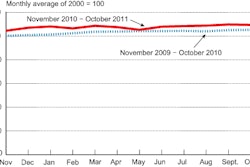The California Air Resources Board voted to introduce some changes to its Low Carbon Fuel Standard to streamline procedures and clarify language. The Low Carbon Fuel Standard is designed to reduce greenhouse gas emissions from transportation fuels 10 percent by 2020.
“The Low Carbon Fuel Standard is an essential part of California’s program to move away from dirty fuels and toward a clean energy future,” says Mary Nichols, CARB chairman. “These changes streamline the program. They ensure that we accurately account for every gram of carbon released during the extraction and transportation of unrefined fossil fuels, no matter where they come from.”
CARB says one key amendment will improve how the regulation accounts for the carbon intensity of crude oils. The carbon intensity of crudes can vary significantly with heavy crudes generally having a higher carbon footprint. The proposed amendments require that the carbon intensity of crudes be fully accounted for just like other fuels under the program. The provision also incentivizes innovation by providing credits for specific actions to reduce the carbon intensity of crude oil.
The amendments also clarify which regulated parties receive low carbon fuel credits for the electricity used to charge electric vehicles. For residential charging, the electric utilities will be eligible for the credits, as they appear best suited to send the credit value back to electric vehicle owners in the form of rebates, time-of-use rates or other incentives. For public access charging, companies that install and service charging units in public settings such as malls or parking structures may receive the related credits. Finally, businesses that install private access charging stations for employees, or fleet operators that operate at least three electric vehicles, also may be eligible for credits.










